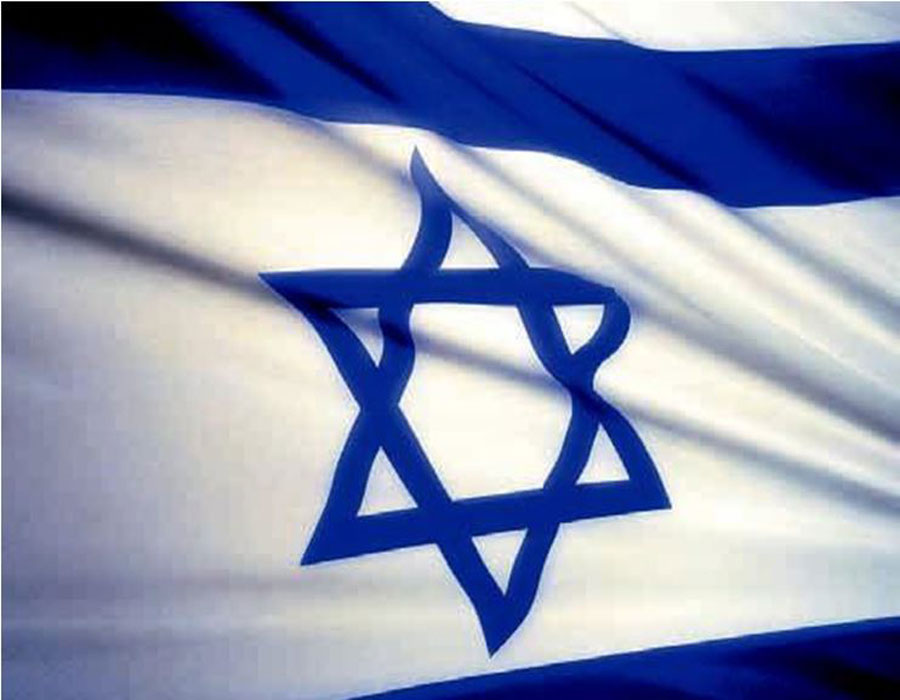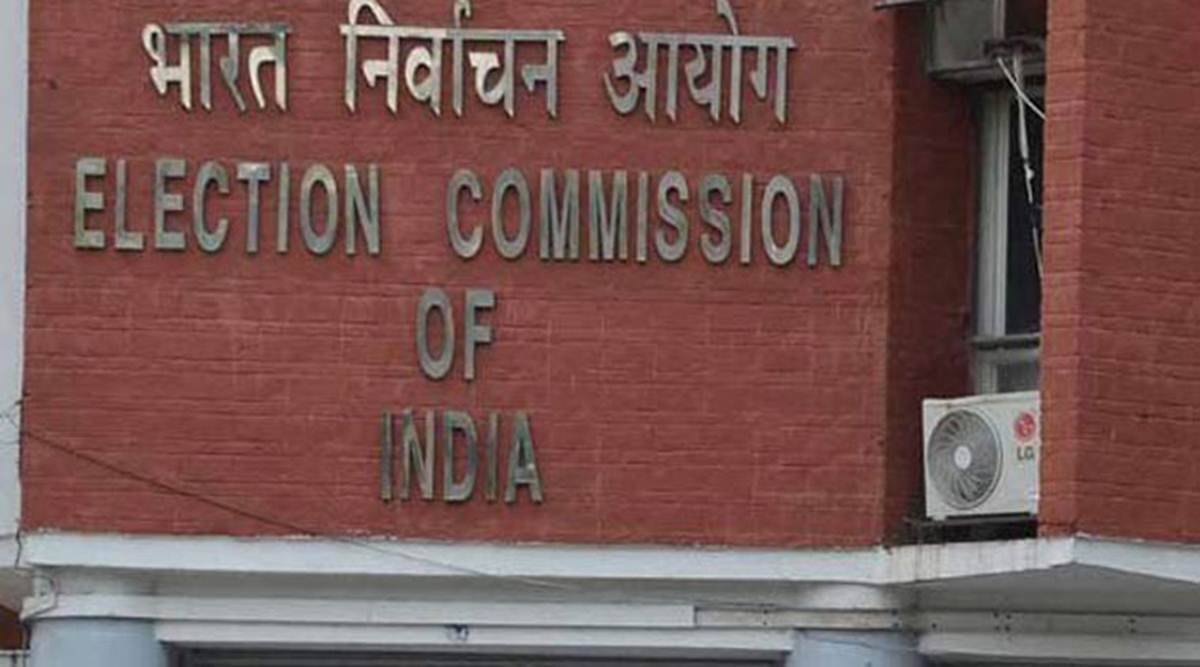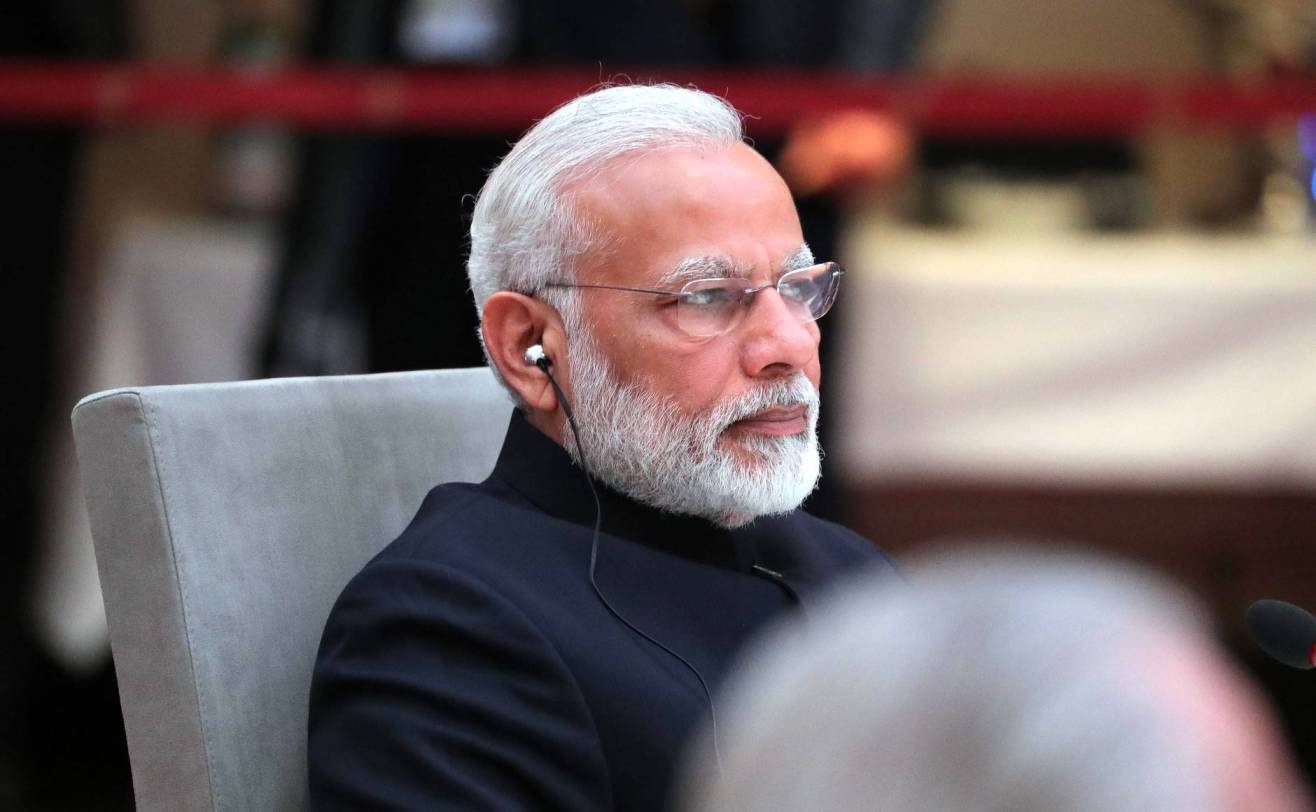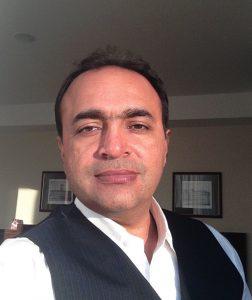Parable of the Family with an Orphan: A large family takes in an orphan. The house is already crowded so the orphan must share an attic room with a child too weak to protest the intrusion. The parents give each of the two children half of the room but ask each child to share a beautiful cabinet, treasured by both. The parents take a long trip, leaving their strongest son in charge. When the parents leave, other children in the family attack the orphan and try to get him to leave. The weakest child, in particular, fights unfairly. He waits for the orphan to sleep and then attacks him. The orphan wakes up each time and hurts the weak child; he also takes over more of the room, including the beautiful cabinet.
As the orphan continues to take over more of the room, the weak child continues to take revenge. The strongest son tries to bring peace and sometimes succeeds for short periods. The basic problem, however, is that each child believes that he should have the entire attic room to himself. Finally, the parents return. They realize that they made a mistake by leaving home while there was such a difficult situation in the attic. They don't just ask the two children to stop fighting, however. Instead, they take immediate action.
The parents decide that the boys need temporary separation, something constructive to keep them busy, and careful supervision. The parents work with the two boys to build shelves and cabinets down the middle of the room, with private storage space for each boy on each side. They install plumbing so each side of the room has plenty of fresh water. Finally, when the crisis is over, the parents set up a way for the boys to share the beautiful cabinet.
The parents do more than just provide better space, however. They provide the love, kindness, and supervision that each child needs to do well. They also make sure that the other children support the solution. Each boy reverts to his old behavior a few times, but the parents remove his privileges each time and the old behaviors stop. Besides, each boy becomes too busy pursuing his own goals to be distracted by fighting. They lived happily ever after...with a few disagreements here and there.
The "large family" is the United Nations. The "orphan" is Israel. The "other children" are the Arab states. The "weakest son" is the Palestinian people. Attacking the orphan unfairly means "terrorist attacks." The "attic room" is the territory of Palestine before the United Nations carved Israel into it. The "beautiful cabinet" is Jerusalem.
The "strongest son" is the United States. Alas, there are no wise parents to supervise the boys. The UN Security Council has not been able to perform this essential role. The "strongest son," therefore, must work with the "other children" to implement peace. If the "strongest son" and the "other children" work together effectively, then peace will spread throughout the entire family.
Recently, this has not happened. Instead, extremist Palestinians have engaged in bombings when Israelis agreed to work on peace. Extremist Israelis have engaged in assassinations or other acts of aggression when Palestinians agreed to work on peace. Israelis are swiftly completing a wall between Israel and Palestinian territory, but the wall is not on the 1967 border. Rather, it snakes into Palestinian territory to unlawfully take land and water rights from 200,000 Palestinians. Extremists from both sides have destroyed the peace process.
The Palestinian people are allowing extremists to lead them. The Israeli people are allowing extremists to lead them. As the violence keeps increasing, wisdom from any quarter would be welcome
A SHORT HISTORY OF CONFLICT
After World War II, the United Nations gave land to the Jewish people so that they could live together in peace. This land, Israel, includes holy places for the Jewish religion and is surrounded by Muslim countries. Palestinian Muslims lived on the land at the time that the United Nations gave it to the Jewish people.
Portions of the land given to the Jewish people, or taken over by them when they won wars against Arab states, are also holy for Muslims. Certain portions of Jerusalem controlled by Israel, called "East Jerusalem," are very important to Muslims. For religious reasons, Palestinian Muslims believe that they must gain control of East Jerusalem as part of any lasting peace settlement.
Further, Palestinians view themselves as living in an occupied nation, where invaders (Israelis) have placed them under military rule. To fight back, Palestinians have built a terrorist network to attack innocent Israeli civilians. Israelis feel they must continue to control Palestinians with military force to protect themselves against more terrorist attacks.
Palestinian View: Palestinians feel that they are not a free people because Israeli soldiers stop them at checkpoints between cities. Many Palestinians, therefore, must get Israeli approval each day to go to work, return home, go to the hospital, get groceries, or visit their own families. After a terrorist attack, soldiers sometimes refuse to let Palestinians through the checkpoints to get to work or other essential places, infuriating Palestinians even more. Further, Israelis control much of the Palestinian water supply and give Palestinians less access to water than they need. Palestinians feel humiliated and abused by the Israelis.
Another issue causing Palestinians great anger is that Israelis have continued to build settlements in Palestinian territory, illegally converting even more Palestinian territory into Israeli territory. Palestinians see the settlements as a sign that Israelis do not want peace.
In March and April of 2002, Israeli soldiers attempted to destroy Palestinian terrorist networks and attacked several of the largest Palestinian cities. In addition to attacking the terrorists, the Israeli soldiers destroyed much of the Palestinian government, including records, equipment, buildings, electricity supplies, water supplies, roads, and more. Palestinians see the attack as an Israeli attempt to keep them from ever having an independent state. In addition, representatives of international relief agencies, as well as Palestinians, accuse Israel of committing war crimes during this attack.
Palestinian Demands: Palestinians want Israel to comply with international law and retreat to the borders that existed in 1967. Palestinians express this de-mand as four key conditions for peace, in-
- A separate Palestinian state (with the same borders as were in 1967),
- Palestinian control of East Jerusalem,
- Ending Israeli occupation of Palestinian territory, and
- Freedom of Palestinian refugees to return to their homeland. Israelis have occasionally discussed supporting a separate Palestinian state, but insist that it must be in the distant future. In addition, Israelis may not be willing to give up actual control of Palestinian territory for security reasons, even if Palestinian territory is eventually called an "independent state." Meanwhile, Israelis have continued to place Israeli settlements on Palestinian land, expanding Israeli territory at Palestinian expense. Palestinians no longer regard Israel as sincere in its negotiations for a separate state.
Regarding control of East Jerusalem, Ehud Barak, former leader of Israel, offered to negotiate the control of East Jerusalem. This is something no other Israeli leader had offered and something the Israeli people did not want to offer. In fact, Barak was removed from power partly because of the offer and was replaced by Ariel Sharon.
Although Barak had offered to negotiate control of East Jerusalem and make other concessions, Palestinians were angry that all of the key conditions they considered essential for lasting peace had not been offered.
Israelis were angry because they were told that most of the key conditions for peace had been offered and that Arafat had refused to negotiate.
Regarding the third Palestinian condition for peace, ending the occupation of Palestinian territory, Israelis seem willing to do this--as long as Palestinian borders are redefined so that Israel can continue to control Palestinian movements through checkpoints between cities and other means.
In other words, Israelis are willing to end the appearance of occupation but they are not willing to reduce their control over the Palestinians.
Barak may have offered real independence to Palestinians, but Israelis and Palestinians disagree about what Barak actually offered. The specific offer of restoration of Palestinian land has remained secret, so it is difficult to determine which side is correct. Palestinians claim that Barak's offer to return Palestinian land was not sincere and would have continued Israeli control of land between major Palestinian cities. Israelis claim that the Barak offer did not break up the Palestinian land and that Arafat's refusal to negotiate the offer means that he will never accept peace. Much of the current conflict rests on the different views of what was offered. Additional information on the offer and disagreements is provided here.
At about the same time as Barak's offer, Sharon deliberately provoked Palestinians with an act viewed by Muslims as extreme disrespect to their religion. Terrorist attacks by the Palestinians started in large measures in response to Sharon's actions. Israelis were then angry by Arafat's refusal to negotiate in good faith and by the resumption of terrorist attacks.
In short, Israelis believe that Barak offered Palestinians their land back and that Palestinians then responded with extreme violence. Palestinians believe that Barak offered no real freedom and that Israelis deliberately insulted their religion (Sharon's visit) and killed Palestinian protesters during negotiations.
Palestinian Compromise: If Israel re-treats to 1967 borders and provides Palestinians with complete independence, will Palestinians stop terrorist attacks? As of March of 2006, the answer is "probably not." Although many Palestinians simply want an independent nation, others, such as the powerful Hamas organization, consider all of the territory called "Israel" to be part of Palestine. Hamas leaders have vowed to continue their terrorist campaign until their demands are met, including the destruction of Israel. Further, when Arafat failed to accept Barak's offer of a separate Palestinian state, many Israelis concluded that Arafat did not want peace.
Arafat did not make a serious effort to stop Palestinian terrorism against Israelis.
International law is on the side of those who advocate for two independent states sharing the land that was called "Palestine" before 1948. However, recent violence against each side has been so vicious that the majority of people may be more interested in revenge than negotiations.
Israeli View: Israelis view Palestinian militants as terrorists who will not compromise to gain peace. Palestinian extremists have, in fact, engaged in terrorist acts against Israeli civilians when peace negotiations between Israelis and Palestinians seemed (to the Israelis) to be moving forward fairly. Because Palestinian terrorists attacked at key times, moderate Israeli leaders have been replaced by more extreme Israeli leaders who do not want to compromise. Israeli leaders do not trust Palestinian leaders to negotiate peace. Israelis do not feel safe enough to reduce their control of Palestinian territories.
Israeli Demands: Israelis want the Palestinians to stop the terrorist attacks. Israelis have four key conditions for peace, including:
- Palestinian borders that ensure continuing Israeli security from Palestinian attacks, not the 1967 borders,
- Israeli control of all of Jerusalem,
- Enough Israeli control within Palestinian territories to allow Israel to destroy terrorist networks, and
- Prevention of Palestinian refugees from returning to their homelands
By comparing the Israeli demands with the Palestinian demands, one can see that the two sides are unlikely to find peace--the demands are completely contradictory. In addition, many Israelis believe that Israel is entitled to all of the Palestinian territories. Every time a compromise is reached, Israeli and Palestinian extremists work against it--often with violence.
Israeli Compromise: If Palestinians stop their terrorist attacks on Israelis, will Israelis retreat to 1967 borders and allow Palestinians complete independence? As of March of 2006, the answer is "definitely not." Although a majority of Israelis are willing to have their military leave the Palestinian territories, a powerful minority consider all of the territory currently called "Palestinian" to be part of Israel. They do not want to compromise or pull back. Instead, they want to keep expanding Israeli settlements into Palestinian territories.
Sharon, before entering a coma, began reducing the settlements. However, when Sharon talked about an independent state of Palestine, he meant a Palestinian state that is still under the control of Israel. Past proposals have, in fact, allowed Israel to maintain control over a new Palestinian state. Palestinians have not found such Israeli offers of "independence" acceptable. Now that Hamas won the last Palestinian election, Palestinians may be even less likely to compromise.
A Road to Peace: With hate so intense on both sides, and demands of each side so completely incompatible, peace will require very powerful outside intervention. The United States and Arab Nations, especially Saudi Arabia, need to join forces. Perhaps an international group, with the United States and Saudi Arabia as leaders, needs to negotiate where to put borders to ensure Israeli security and also Palestinian land integrity. Left to themselves, neither Israelis nor Palestinians can make a lasting agreement on borders. If an international group negotiates the borders, it will also need to determine how to separate the two sides. International forces will probably need to stand between Palestinians and Israelis for a long, long time. Israelis and Palestinians may even need a physical wall to separate them.
Israelis have destroyed much of the government and infrastructure of the Palestinians. The Palestinians will need a great deal of outside support to rebuild themselves into a separate nation. Without such support, the world will be facing "another Afghanistan" where anarchy will again breed terrorism.
Muslim nations will need to play a strong role in helping to build a new Palestine without terrorism. Muslim nations will need to help mentor new Palestinian leaders who do not support terrorism. Palestinians will need another type of leadership, other than Hamas, to build a new strategy for long-term peace.
The United States will need to use its influence to help Israel shape a new strategy also. Israel has had to mobilize for war, justifiably, since its beginning. It has had little peace. However, Israel elected a leader, Sharon, who was associated with a massacre of Palestinians in Lebanon. Electing a man known for brutality does not say much for the peace strategy of the Israeli people. If an international group insures Israel's security, Israel will need a different kind of leadership, as well as a new strategy for long-term peace. Acting Israeli Prime Minister Ehud Olmer is following Sharon's path and Sharon is unlikely to return to leadership.
An outside group will also have to determine how to allocate water rights fairly between the Palestinians and Israelis. Without outside intervention, water wars are likely to erupt, even if the land borders are settled peacefully.
What ideas do you have to move us toward lasting peace? It is very important to realize that the Muslim religion teaches peace and tolerance, not terrorism and war. In fact, the Muslim religion does not allow a person to commit suicide or hurt innocent people, even during the war.
Methods of Fighting: The Palestinian people, led by Yasser Arafat until his death in 2004, are outraged by the Israeli occupation of Palestinian territories. The Israeli leadership is continuing to use military force against protesters. Israel has one of the most advanced military forces in the world and the Palestinians have very limited military capability. Most of those dying in the conflict have been Palestinians.
The method of fighting for each side is quite different. The Palestinians have no army and have used bombs against civilian men, women, and children to try to make the Israelis afraid for their personal safety. They expect the Israelis to respond to the bombings by attacking the Palestinian people. When Israel does this, Palestinians hope that other countries will then help the Palestinian people and protect them from the Israelis.
The Palestinian bombers almost always die in the attacks, so the Israeli military then kills Palestinians suspected of planning the attacks. The Israeli military has killed or seriously injured many Palestinian civilians while pursuing terrorists. In addition, Israelis have damaged a great deal of Palestinian property during chases.
In short, each side is responding to the other by killing civilians--men, women, and children who are not part of the military. Each side is killing for revenge, as well as to meet its own goals. Each side is trying to convince the rest of the world that it is acting with high morality. Each side is creating a climate of violence and terror for their own children and grandchildren.
This is not a matter of two nations at war, however, since the Palestinians do not yet have a separate state. Israelis have the ability to kill or drive away most of the Palestinians, while the Palestinians do not have that power against the Israelis. This unequal contest may turn out badly for all of us unless the USA and others intervene effectively. If Palestinians continue to use terrorism to try to achieve their goals, and if Israel continues to use military force against the Palestinian people to combat terrorism, many other nations may find themselves involved against each other regarding the conflict.
The Water Issue: A concern of the Israelis, Palestinians, and Arab nations in the region is the water issue. Mikhail Gorbachev (former Premier of the Soviet Union) and Shimon Peres (former Prime Minister of Israel) noted that "More than anywhere else, the Middle East exemplifies the perils and possibilities created by the water crisis."
"In the past 10 years, the various states in the Middle East have spent billions to acquire arms instead of building water pipelines or finding ways to conserve, clean and use water more efficiently on a shared, regional basis."
"We all know that deserts create poverty and that poverty often leads to war -- especially when everyone is armed to the teeth. But missiles in an armed desert can't carry water any more than mine-fields can stop pollution from crossing borders."
"The alternative to another round of conflict, this time over water instead of land, is cooperation. Desalinization or joint management is cheaper than launching wars for rivers."
A recommendation by Jad Isaac of the Applied Research Institute, Jerusalem, includes a confidence-building measure by the Israelis. He emphasizes that Gaza and West Bank Palestinians do not have sufficient access to water now and suggests that negotiations for peace include Israel making sufficient water available to the two areas.
Role of the USA: What is the role of the USA in this? Palestinians claim that the fighting has expanded partly because the USA has not influenced the Israeli government to use more restraint. The Israelis claim that the conflict has expanded because the Palestinian leadership has not stopped the terrorism.
A plan was developed by a group of experts, led by former U.S. Senator George Mitchell, to find a path to peace. The leaders of the Israelis, Palestinians, and the United States accepted the plan. The plan requires each side to stop attacking the other side and for each side to try to help the other side achieve what it wants most, one step at a time. However, both the Palestinians and Israelis have continued the fighting instead of actually following the plan.
Crown Prince Abdullah of Saudi Arabia then proposed a plan in April (2002) that has the support of neighboring Arab states and is consistent with the Mitchell plan. It has the interest of the United States, Israel, and the Palestinians. It includes full normalization of relationships with Israel by all Arab states and recognition of Israel as a state by all Arab states. In return, Israel must pull out of Palestinian territories, and back to the 1967 borders. It allows for compromise and negotiation on the return of Palestinian refugees to their homeland.
Both Israelis and Palestinians have asked the USA to help broker a peace process. Intervention by the USA did seem essential to gain a lasting peace, but now that the conflict has escalated, much more than the USA may be needed for effective intervention.
The Bush administration is focused on combating terrorism, a method of fighting associated with Arafat. Arafat has not been very convincing in trying to stop terrorism. Evidence suggests that instead of trying to stop it, he may have supported terrorism.
To complicate the situation even more, Israel has been accused of committing war crimes against Palestinians and will not let the United Nations investigate to see if the accusations are true. Allegations against Israel are being made by international humanitarian agencies who tried to render aid to wounded Palestinians.
The consensus seems to be growing that a slow, step-by-step process, such as recommended by the Mitchell plan, will no longer work. Trust between the Israelis and Palestinians has been destroyed and the Mitchell plan requires trust by both sides. Something quite different may be needed. See "A Road to Peace" above.
Why Do Palestinians Fight This Way? Why are Palestinians killing civilian Israeli men, women, and children when the Qur'an specifically prohibits killing non-combatants? Why are they doing this when they know that such deaths harden the hearts of the Israeli people and will make it unlikely for Palestinian children or grandchildren to ever have peace? Why are Palestinians planting the seeds of suffering for their own children and grandchildren?
The short answer is that the Palestinians are exhausted, desperate, and very angry because of the Israeli occupation of their land. They also lack a leader who is focused on long-term peace.
Why Do Israelis Fight This Way? Why are Israelis supporting military actions against civilians and occupying land that is not theirs? Why are Israelis allowing their armies to do this when they know that such actions harden the hearts of the Palestinian people and will make it unlikely for Israeli children or grandchildren to ever have peace?
The short answer is that the Israelis are exhausted, desperate, and very angry because of the terrorist attacks. They also lack a leader who is focused on long-term peace.
US and Isreal are the most trusted allies? A chronological look at the evidence
There is a big debate going on among Jews around the world, there is a striking convergence of opinion concerning the relationship between the US and Israel. The new US President and his administration are trying to balance both Isreal and Arab interests by keeping the channel of communications open to all players having an interest in the Middle East.
Supporters of the PLO – synonymous with "supporters of a Palestinian state", because the PLO will run any such state - are convinced that the US is an ally of Israel. Some believe the US employs Israel in order to expand the American empire, and others - echoing the claims of that infamous forgery, "The Protocols of Zion" - believe that history's greatest superpower, the US, is actually the pawn of tiny Israel. Either way, they agreed that the US and Israel are supposed 'a team.'
Supporters of Israel naturally disagree with supporters of the PLO about most things but not on this point, as they also believe that the US is a friend of Israel-perhaps its only real friend. Whereas those who are pro-PLO are especially infuriated by perceived US support for Israel, those who are pro-Israel are deliriously grateful for the same (especially so in the case of Zionist Jews).
Given that across the spectrum of those politically mobilized on this issue, from one pole to the other, everybody appears to have the same opinion on this, casual observers are naturally drawn into an agreement as well, creating a crushing consensus all over the world: the US is an ally of Israel.
But is it true?
Let us first ask: what is an ally? My dictionary defines 'ally' as "one who is associated with another as helper."
Everybody knows that the US says it supports Israel. But actions speak louder than words. What is the evidence of US actions? In this piece, I provide a chronological list of relevant US policies over the years.
I am hoping that this piece will begin a debate. It is not finished, and the research relevant to its claims is ongoing. I shall be updating the piece as I gather more data. But I have already assembled quite a lot, below, and what I have is certainly sufficient to challenge the common
View. I believe, in fact, that what I have presented below is already sufficient to refute the common view many times over, and the compilation of these documented facts came as a big eye-opener. Hopefully, this documentation will begin a serious debate on this question, rather than an automatic assumption based on official claims of US support for Israel - which claims are cheaply, and therefore easily, made.
It is important to remember that what is examined here is the behavior of the US foreign policy Establishment, which is secretive. The evidence, therefore, speaks to what is and has been, the true position of the US ruling elite with regard to Israel and the Jewish people. It does not speak to the position of the American people, many of whom, I believe, will be outraged to find that, as I document on the next pages, the US specializes in attacking Israel. In fact, the section on 1947-48 contains dramatic evidence that ordinary Americans tend not to favor the anti-Jewish policies of the US ruling elite.








 OpinionExpress.In
OpinionExpress.In















Comments (0)